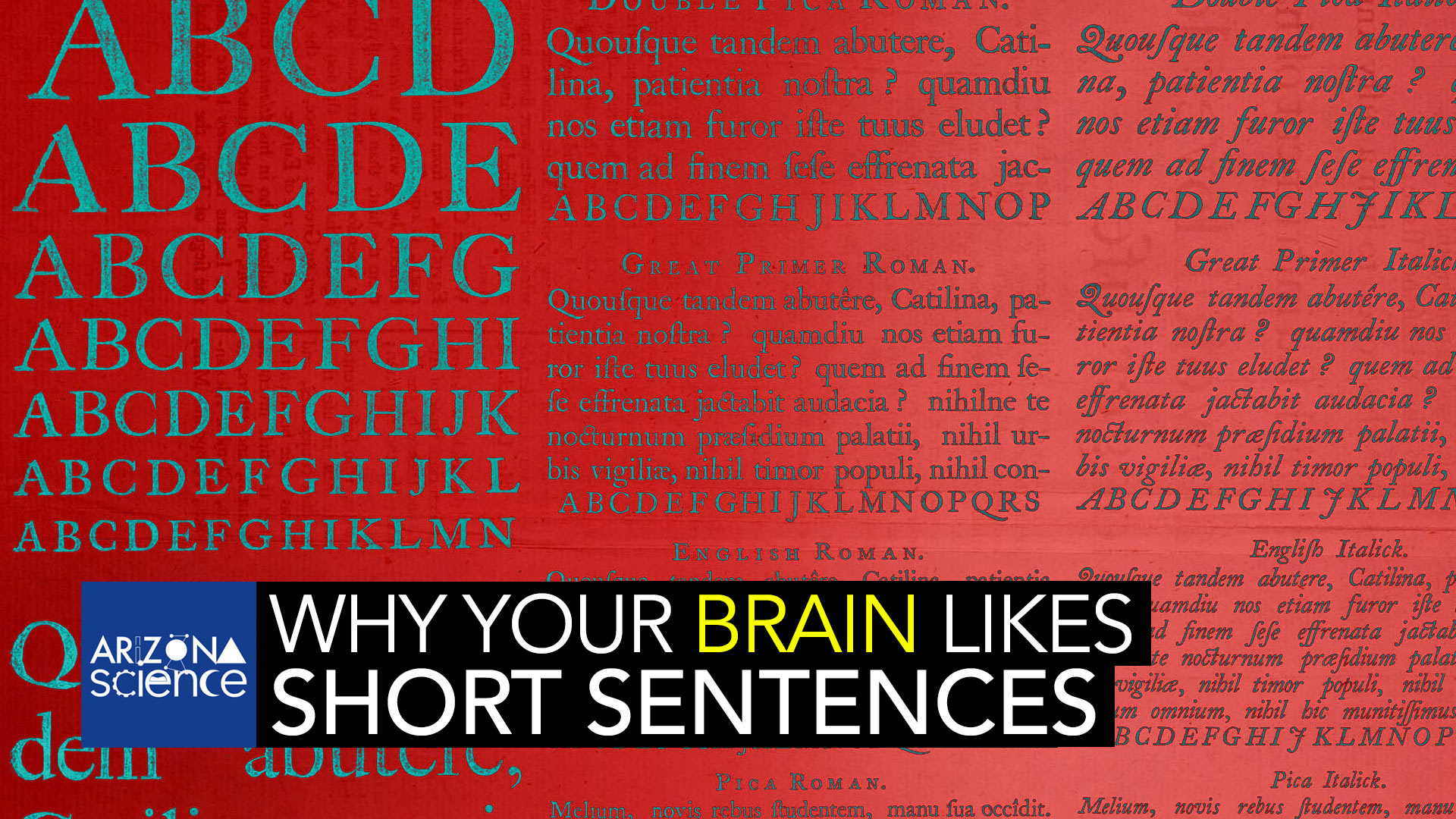 A new study reveals that across all languages, our brains prefer shorter sentences.
A new study reveals that across all languages, our brains prefer shorter sentences.
A new study at the University of Arizona, led by Masha Fedzechkina, an assistant professor in linguistics has focused on the similarities seen across human languages. Fedzechkina and her team suggest that these similarities might be based on the brain’s preference for efficient information processing. She and her team designed a study in which two groups of English-speaking-only individuals learned an artificial languages based on Japanese rules of grammar over a three day period. Both groups were then taught two ways to express the same ideas in the language. When later tested, the participants showed an overwhelming preference for short dependency length, the distance between words that depend on each other for interpretation.
In this episode:
Masha Fedzechkina, Assistant Professor of Linguistics at the UA
Tim Swindle, Ph.D., Director and Head of the UA's Lunar and Planetary Lab

By submitting your comments, you hereby give AZPM the right to post your comments and potentially use them in any other form of media operated by this institution.